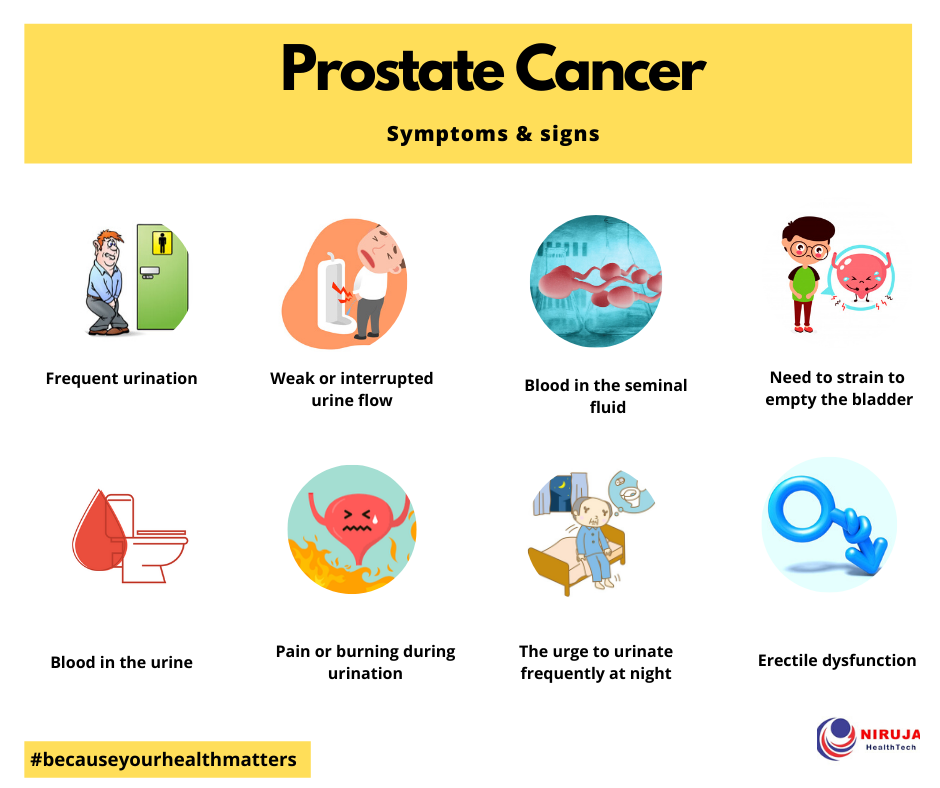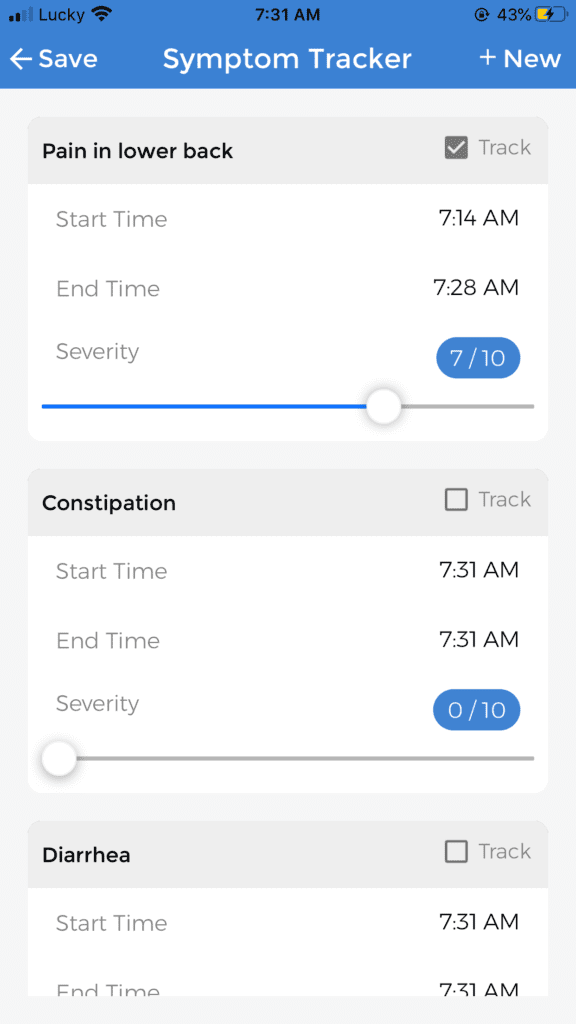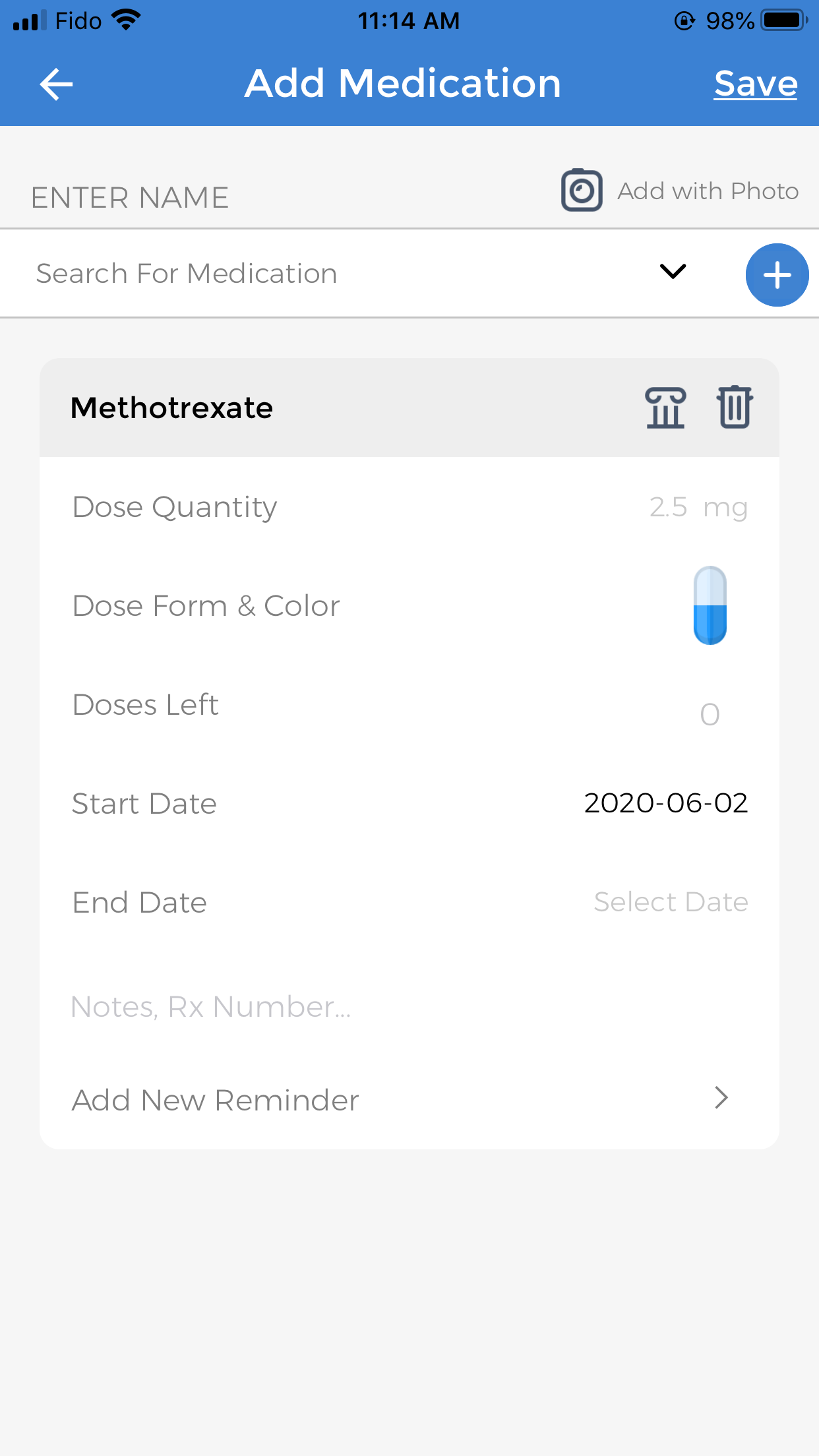
Did you know that prostate cancer is the second most common cancer in men worldwide? Prostate cancer is a form of cancer that develops in the prostate gland, which produces seminal fluid that nourishes and transports sperm. While some types of prostate cancer grow slowly and require minimal or no treatment, other types such as metastatic prostate cancer can spread quickly and aggressively. This #Movember, let’s encourage the men in our lives to learn about the common warning signs associated with metastatic prostate cancer and how they can take action by reaching out to their doctor.
Prostate cancer stages
There are four clinical stages of prostate cancer. They are T1, T2, T3, and T4. These stages are based on a physical evaluation by a urologist and diagnostic imaging techniques.
In T1, the tumour cannot be felt during physical examinations or seen during imaging (e.g., a computed tomography (CT) scan or transrectal ultrasound). It may be found when surgery is done for another medical condition.
In the T2 stage, the tumour appears to be confined to the prostate. Due to the size of the tumor, the doctor can feel it during a physical examination, and the tumor may also be seen with imaging.
In the T3 stage, the tumour has grown outside the prostate and the tumour may have spread to the seminal vesicles.
In the last stage, called T4, the tumour has spread to tissues next to the prostate, other than the seminal vesicles. For example, cancer may have also spread to the rectum, bladder, urethral sphincter (the muscle that controls urination) and/or pelvic wall.
MRI for prostate cancer diagnosis
Physicians use MRI scans during a prostate biopsy to help guide the needles into the prostate. If the physician finds signs of prostate cancer, an MRI is done to help determine the stage or extent of cancer in the prostate. MRI for prostate cancer diagnosis can show if the cancer has spread outside the prostate into the seminal vesicles or other nearby structures. This can be very important in determining treatment options for the patient. However, MRIs for prostate cancer diagnosis are not usually necessary. MRI scans are not usually necessary for newly diagnosed prostate cancers that are likely confined to the prostate based on other factors.
Multiparametric MRI is a newer technique for prostate cancer diagnosis. One may use this newer MRI for prostate cancer diagnosis to better define possible areas of cancer in the prostate. It can also be used to get an idea of how quickly the tumour or tumours might grow. It can also help show if cancer has grown outside the prostate or spread to other parts of the body. For this test, the physician conducts a standard MRI to look at the anatomy of the prostate, and then they will use at least one other type of MRI to look at other parameters of the prostate tissue. This other type of MRI for prostate cancer diagnosis might be diffusion-weighted imaging [DWI], dynamic contrast-enhanced [DCE] MRI, or MR spectroscopy. One can then compare the results of the different scans with each other to help find abnormal areas.
Symptoms of recurrent prostate cancer
Physicians find most prostate cancers early through screening, such as MRI for prostate cancer diagnosis techniques. Early prostate cancers usually result in no symptoms. More advanced prostate cancers can sometimes cause symptoms. Symptoms of recurrent prostate cancer may include:
- Issues with urinating. This might include a slow or weak urinary stream or the need to urinate more often, especially at night
- Blood found in the urine or semen
- The trouble with getting an erection (erectile dysfunction or ED)
- Pain in the hips, back (spine), chest (ribs), or other areas from cancer that has spread to bones
- Weakness or numbness in the legs or feet
- Loss of bladder or bowel control
Most of these problems are more likely to stem from something other than prostate cancer. For instance, issues with urinating are more often caused by benign prostatic hyperplasia (BPH). BPH is a non-cancerous mass of cells occurring in the prostate. However, it is always important to consult your doctor or health care provider if you have any of these symptoms. This way, the cause of your issues can be identified and treated, if necessary.

Risk factors of metastatic prostate cancer
A risk factor is any factor that increases your risk of getting a disease such as metastatic prostate cancer. Many people with one or more risk factors might never get cancer. Others who get cancer may have had few or no known risk factors. Risk factors for metastatic prostate cancer include age, race or ethnicity, geography, family history and genetics. Other factors that may influence risk include diet, being obese, smoking, exposure to certain chemicals, infection, inflammation of the prostate and having a vasectomy.
Prostate cancer and metastatic prostate cancer is rare in men younger than 40. The risk of having prostate cancer increases rapidly after age 50 in men. Approximately 60% of prostate cancer cases are found in men older than the age of 65. Metastatic prostate cancer develops more often in African-American men and in Caribbean men of African ancestry than in men of other races. Men of African-American descent often develop metastatic prostate cancer at an earlier age. Prostate cancer occurs less often in Asian-American and Hispanic/Latino men than in non-Hispanic whites. Metastatic prostate cancer is most common in North America, northwestern Europe, Australia, and in the Caribbean islands. The occurrence of metastatic prostate cancer is less common in Asia, Africa, Central America, and South America.
Researchers believe that metastatic prostate cancer may have a genetic factor. Having a father or brother with prostate cancer more than doubles a man’s risk of developing this disease. The risk is higher for men with several affected relatives, especially if their relatives were young when the cancer was found. The risk is also higher for men who have a brother with the disease than for those who have a father with it.
Diet effects on metastatic prostate cancer
The exact role of diet in prostate cancer is not clear. However, men who eat a lot of dairy products seem to have a slightly higher chance of developing metastatic prostate cancer.
Some studies have suggested that men who consume a lot of calcium through food products or supplements may have a higher risk of developing prostate cancer. However, most studies have not found a link between the development of metastatic prostate cancer and the levels of calcium found in the normal diet.
Obese men may be at greater risk for having more advanced metastatic prostate cancer and of dying from prostate cancer. However, more research is necessary to examine the link between obesity and the development of metastatic prostate cancer. Some research has also linked smoking to a possible higher risk of dying from prostate cancer, but more research needs to be done to learn more about this connection.
Chronic prostatitis/chronic pelvic pain syndrome
Prostatitis is when there is inflammation of the prostate gland. There is a possible link between chronic prostatitis and an increased risk of prostate cancer. However, other studies have not found this link. Inflammation is often seen in samples of prostate tissue that also contain cancerous cells. More research is needed to understand this link. If you are experiencing chronic prostatitis/chronic pelvic pain syndrome, it is important to consult your doctor or healthcare professional.
Researchers have also investigated the possible relationship between sexually transmitted infections, such as gonorrhea or chlamydia and the potential increased risk of prostate cancer. Sexually transmitted infections can lead to inflammation of the prostate, and thus may play some role in increasing the risk of developing metastatic prostate cancer.
Early and advanced prostate cancer treatment
Prostate cancer treatment options depend on several factors. This includes how fast your cancer is growing, whether it has spread to other parts of your body and your overall health. Your doctor might also consider some potential benefits or side effects of the specific treatment plan.
Less serious or non-metastatic prostate cancer may not need treatment right away. Some may never require treatment. Rather, doctors sometimes recommend monitoring and surveillance of the prostate tissue. Surveillance involves regular follow-up blood tests, rectal exams and prostate biopsies. Healthcare professionals perform these surveillance tests to monitor the progression of cancer. If tests show that your cancer is progressing aggressively, you may opt for a prostate cancer treatment such as surgery or radiation.
Active surveillance and monitoring may be an option for cancer that is not causing symptoms, is expected to grow a very slow rate and is confined to a small area of the prostate gland. Active surveillance may also be considered for someone who has another serious health condition. It may also be used for someone who is of an older age, which makes cancer treatment like radiation and surgery more difficult.
Advanced prostate cancer treatment
Surgery for prostate cancer involves removing the prostate gland in a procedure called a radical prostatectomy. Doctors may also remove some surrounding tissue and lymph nodes. Surgery is an option for treating cancer that is localized or confined to the prostate gland. Sometimes, physicians also use surgical procedures to treat advanced prostate cancer in stages 3 or 4, in combination with other treatment options.
Radiation therapy uses high-powered energy to kill cancer cells. Ablative therapies destroy prostate tissue with cold or heat. Physicians can also use hormone therapy to stop the body from producing the male hormone testosterone. Prostate cancer cells rely on testosterone to help them grow. Therefore, cutting off the supply of testosterone to these cancer cells may cause them to die or to grow more slowly. This slows the progression of metastatic prostate cancer.
Using CareClinic for active surveillance for prostate cancer

CareClinic is a free app for iOS and Android that also sends medication reminders to patients who may need to take pain medicines for their cancer symptoms. The app either provides pop-ups on the screen of your smartphone or vibrates when it is time to take a particular medication.
It also has a chemo countdown that reminds the patient of his or her chemotherapy session. You will never miss a medication dose or chemotherapy session when using CareClinic. The app has an updated user interface that is flexible to accommodate different devices, languages and more.
You can track symptoms accurately in the app, as you can also log in severity, time and date. For easy understanding and visualization, the data you type in is presented in the form of a graph, which can then be printed for your next medical checkup. Aside from that, you will be able to get information online using the app with regard to the disease. Read journals and watch videos about cancer treatments and other latest technological advancements on treatments and therapies.
CareClinic also has a diary in which all data that you enter can be printed at the end of the month. This serves as a health report you may share with your doctor. The report is very important in adjusting or if your doctor needs to change your medications or type of therapy.
Medication reminder for cancer treatment plans

The pill reminder feature on CareClinic allows you to set up reminders for different drugs. You can add information regarding the dosage, frequency, dosage form (pill, tablet, and capsule) and possible side effects. The application can even act as an interaction tracker, outlining any potential drug-to-drug interactions.
Once one creates drug reminders, the application will send push notifications to remind patients to take their specific medications. If patients do not confirm having taken the medication by clicking on this notification, the app will continue to send reminders (snooze feature).
Reminders are an easy method to help ensure medication adherence. You can also set reminders for prescription refills and doctor appointments (customizable reminders). You can view your treatment plan in calendar mode, as you would in your Google calendar.
Connect with your care team
Within the CareClinic App, you can create your own care team by adding friends, colleagues, family members, and diverse healthcare professionals. Your care team can keep up-to-date with the treatments you are taking. You can also let them know how you are feeling and the progress that you are making with regard to improving your health.
A team approach is required to ensure the best possible outcomes for patients. The care team may include a primary provider, pharmacist, nurse, counsellor, physical therapist, occupational therapist, and others involved in patient care. Collaboration between caregivers allows for a holistic approach to treatment and health management.
Using CareClinic to keep up with healthy habits and wellness
The concept of “Care Plans” is at the core of CareClinic. Think of care plans as folders containing your plan to tackle specific health issues. This includes your journal entries, notes, medications you need to take, nutrition, therapy notes and sessions, and even fitness.
Create Check-In posts after you have made your initial care plan. Check-ins help you hold yourself accountable. Manage a certain treatment (such as for chronic illness), or manage your with care plans. You can also keep track of health goals such as getting enough sleep and practicing daily mindfulness.
Checking in hourly, daily, weekly, or as frequently as you prefer. Checking in involves writing something in your diary, adding a measurement or uploading a relevant photo.
Your check-in post will become visible in the Reports section once you save your check-in. This is where you can view your check-in post along with other posts over time. This allows you to identify trends in your symptoms and daily health habits.
It is good to view your health logs periodically as it will help you optimize for better outcomes by discovering new patterns in your data. CareClinic tries to spring up as many triggers, correlations, and alerts based on your journal entries. You can record metrics related to your health as well.
Maintaining nutrition and physical activity
A healthy diet ensures the proper functioning of vital organs and systems. Healthy nutrition can help with coping with the symptoms of metastatic prostate cancer and improving overall health.. It also provides us with energy to complete daily tasks and live life to the fullest. Vitamins and minerals are essential micronutrients our bodies require in order to stay healthy. The CareClinic app can keep track of your vitamin and mineral intake. The application functions as an excellent nutrient log tracker, allowing you to track not only vitamins and minerals. You can also track your macronutrients (proteins, carbs, fats), omega-3 fatty acids, antioxidants, and various phytonutrients.
Bike rides, jogs, yoga, and meditation throughout the day are very beneficial. Simple breathing exercises are quick and easy habits that one can implement into their daily schedule. These beneficial exercises do not only provide us with anxiety reduction, but they also provide our bodies with various cardiovascular benefits. Physical activity is a great way to regulate mood, and healthcare providers recommend physical activity in order to stay healthy. CareClinic is a free mobile and web-based app. One can use this app to create physical activity plans. The app allows one to stick to one’s fitness goals.
Raise awareness of metastatic prostate cancer this Movember
Metastatic prostate cancer can be difficult to deal and cope with. It is important that we encourage the men in our lives to be aware of its signs and symptoms, as well as the various treatment options. This No Shave November, learn more about metastatic prostate cancer and encourage the men in your life to become more aware and educated on this disease.


